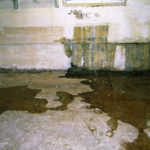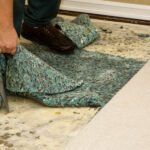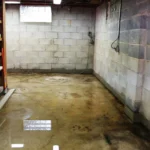Why You Should Be Concerned About a Musty Basement Smell
What Causes a Musty Basement Smell?
Identifying the exact cause of a musty basement smell can be tricky since there are several possible culprits. However, there are three main ingredients that often create the conditions for this unpleasant odor:
- Organic Material
-
- Organic materials like wood, cloth, or certain insulation types are prime areas for mold growth. This could include floor joists, ceiling beams, or items stored in the basement. Removing unnecessary organic material or treating exposed wood can help prevent mold and odors.
- High Humidity
-
- Humidity levels in your basement contribute significantly to musty odors. When the air reaches 100% humidity, condensation occurs. This moisture combines with organic material, setting the stage for mold growth.
- Mold
-
- Mold and mildew thrive when organic material and moisture mix, and they are usually the main sources of musty smells. Mold can pose serious health risks, especially varieties like black mold, which can harm the respiratory system. Cleaning the mold is rarely enough—it's essential to address the underlying moisture issues to prevent recurrence.
Recognizing the Underlying Causes of Mold
Mold requires moisture to grow, so recurring mold issues often indicate a persistent moisture source. This could be anything from worn sealants around windows or entry points to significant foundational issues like rising dampness.
Steps to Eliminate Musty Basement Smells
Step 1: Remove the Mold
Step 2: Dehumidify
Final Touches for a Mold-Free Basement
Consider Waterproofing to Address Your Musty Basement Smell
Whether you tackle mold removal on your own or bring in professionals, preventing dampness and mold from recurring is essential. Professional help can identify the moisture sources in your basement and home, but there are proactive steps you can take as well. Keep your basement clean and free of debris that could trap moisture, and ensure that exterior drainage systems are not clogged, as blocked drains can redirect water toward your foundation instead of away.
For long-term protection against dampness and mold, basement waterproofing is a wise investment. There are various waterproofing options, including installing interior drains, a sump pump, or an energy-efficient dehumidifier. Wet Basement Services can help determine the best solution for your specific needs—just request a free inspection to get started.
Why Professionals Are Key in Tackling Musty Basement Smells
While DIY mold removal is possible, it’s often best to enlist experts to ensure thorough and safe remediation. Removing mold without addressing its cause could lead to recurring issues, potentially resulting in an endless cycle of cleaning and dehumidification, which can be costly over time.
Wet Basement Services offers affordable, high-quality waterproofing, mold remediation, and mold prevention, complete with a free inspection and quote. Our specialists are equipped to find underlying causes, solve the problem, and provide guidance to help prevent mold from returning.




